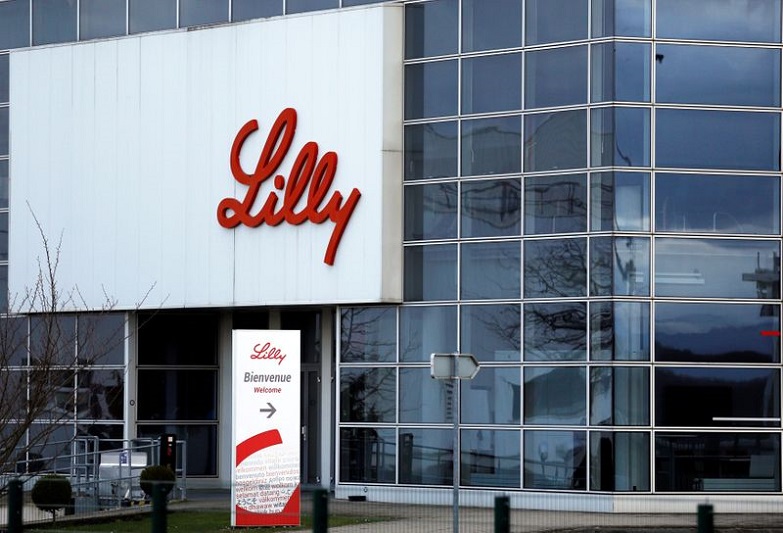Street Calls of the Week
On Tuesday, Goldman Sachs upgraded shares of Eli Lilly (NYSE:LLY) from Neutral to Buy, while slightly reducing the price target to $888 from $892. The firm's analyst highlighted the pharmaceutical company's strong position in the growing anti-obesity medication (AOM) market. According to InvestingPro data, Eli Lilly maintains a GOOD financial health score and has demonstrated impressive revenue growth of 32% over the last twelve months. The company currently trades at a P/E ratio of 61, reflecting market optimism about its growth potential. With a detailed analysis of the market, including surveys and diligence, Goldman Sachs projects that Eli Lilly will continue to lead in a market expected to triple from approximately $28 billion to around $95 billion by 2030. As a prominent player in the pharmaceuticals industry, Eli Lilly has maintained dividend payments for an impressive 55 consecutive years, demonstrating long-term financial stability. Get deeper insights into Eli Lilly's market position and growth potential with InvestingPro's comprehensive research reports, available for over 1,400 top US stocks.
The upgrade is based on two primary factors. Firstly, Eli Lilly's early-mover advantage, manufacturing capabilities, and a comprehensive late-stage cardiometabolic portfolio are anticipated to help the company maintain its leadership in the AOM sector. Goldman Sachs forecasts Eli Lilly's AOM franchise revenue for the 2026-28 period to exceed consensus estimates by 10.3% to 8.9%.
Secondly, the company's strategic approach to replicate the success of its obesity/incretin franchise across its broader portfolio is expected to yield positive results. This strategy focuses on targeting large markets and improving speed and efficiency in bringing products to market. According to Goldman Sachs, this groundwork may lead to new product cycles that could materialize well before Eli Lilly's next significant patent expiration, which is more than a decade away.
Goldman Sachs is particularly optimistic about the commercial potential of Eli Lilly's once-daily oral small molecule, orforglipron, for the treatment of obesity and diabetes. With orforglipron currently in over seven global Phase 3 trials and initial readouts expected in the second quarter of 2025, the firm projects risk-adjusted peak sales of $23.5 billion by 2035. This estimation is significantly higher than the consensus forecast of $16.8 billion, indicating strong confidence in the drug's future market performance following its anticipated global launch in 2026.
The analyst's positive outlook on Eli Lilly is informed by extensive market modeling and reflects a belief in the company's ability to maintain its market dominance and capitalize on new growth opportunities in the coming years. With a robust gross profit margin of 81% and strong return on equity of 85%, the company's financial metrics support this optimistic view. InvestingPro subscribers have access to over 15 additional exclusive insights and detailed valuation metrics that can help inform investment decisions in this rapidly evolving market.
In other recent news, Eli Lilly & Co. has faced a series of developments impacting its operations and strategic outlook. The Centers for Medicare and Medicaid Services (CMS) delayed a decision that could have expanded Medicare coverage for obesity drugs, affecting Eli Lilly and Novo Nordisk (NYSE:NVO) A/S, both key players in this market. This decision leaves the future of obesity drug coverage uncertain, which is significant for Eli Lilly's financial performance. Meanwhile, Hims & Hers Health announced it would begin selling Eli Lilly's diabetes and weight-loss drugs on its telehealth platform, expanding its pharmaceutical offerings and enhancing drug accessibility online.
In a separate development, Eli Lilly's Kisunla, an early Alzheimer's treatment, was denied marketing authorization by the European Medicines Agency due to safety concerns, particularly the risk of amyloid-related imaging abnormalities. This setback highlights the ongoing challenges in developing effective Alzheimer's treatments. Additionally, several drugmakers, including those in Europe, are reportedly expediting shipments of medicines to the United States in anticipation of potential tariffs announced by President Donald Trump. This precautionary measure aims to mitigate any disruptions tariffs might cause in the pharmaceutical supply chain.
Lastly, Mehmet Oz has been confirmed as the new Administrator of CMS, and one of his early tasks will be addressing the Medicare coverage proposal for Eli Lilly's weight-loss drugs. These recent developments are crucial for investors monitoring Eli Lilly's strategic and financial positioning in the healthcare industry.
This article was generated with the support of AI and reviewed by an editor. For more information see our T&C.
